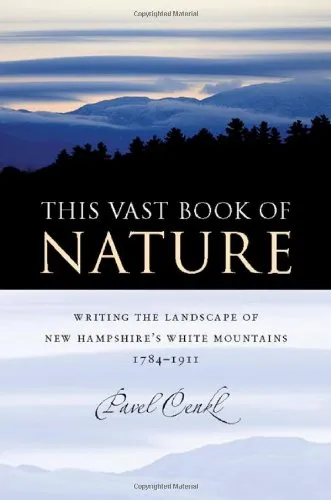This Vast Book of Nature: Writing the Landscape of New Hampshire's White Mountains, 1784-1911 (American Land & Life)
4.0
Reviews from our users

You Can Ask your questions from this book's AI after Login
Each download or ask from book AI costs 2 points. To earn more free points, please visit the Points Guide Page and complete some valuable actions.Related Refrences:
Introduction to "This Vast Book of Nature"
This book invites readers to journey through the transformative landscape of New Hampshire's White Mountains, capturing the region's evolution from a wild frontier into a cultural and recreational hub. Authored by Pavel Cenkl, it delves into the interplay between humanity and nature as interpreted through the written word from 1784 to 1911.
Detailed Summary of the Book
The book meticulously examines the writings that have emerged from and about the White Mountains over more than a century. It brings together perspectives from early explorers, settlers, and tourists, each writing with diverse intentions and outlooks. From naturalists who painstakingly documented flora and fauna to poets who drew inspiration from the majestic peaks, their combined narratives weave a rich tapestry of the region's ecological and cultural significance.
Pavel Cenkl's work presents a chronological narrative that highlights crucial changes in societal attitudes towards wilderness and landscape. By focusing on texts spanning over a century, the book underscores evolving concepts of beauty, utility, and conservation. It places special emphasis on the American Romantic period, a time when the White Mountains were elevated to symbols of transcendental beauty and sublime power.
Key Takeaways
- The Dynamic Interplay of Culture and Nature: The book illustrates how cultural perceptions shape and are shaped by the natural environment, offering insights into the historic roots of current ecological consciousness.
- Historical Perspectives on Conservation: By analyzing past writings and attitudes towards the White Mountains, the book provides valuable context for modern conservation efforts.
- The Role of Literature in Environmental Understanding: It highlights the importance of written works in framing our understanding of landscapes, emphasizing the power of narrative in ecology.
Famous Quotes from the Book
“The White Mountains stand not merely as a geological phenomenon but as the monumental intersection of human aspiration and nature's majesty.”
“Through each written word, a new facet of these mountains is revealed, reflecting the eternal duality of being both observer and observed.”
Why This Book Matters
This book is crucial for anyone interested in the history of American landscapes, environmental literature, or the cultural history of New England. By examining the White Mountains through a literary lens, it provides a nuanced understanding of how our interactions with nature have been documented, interpreted, and transformed over time. It is an invaluable resource for historians, environmentalists, and literature enthusiasts alike.
Ultimately, "This Vast Book of Nature" serves as a timeless reminder of the intricate bond between humanity and the Earth, urging us to contemplate the responsibilities that come with the privilege of dwelling in such dynamic landscapes.
Free Direct Download
You Can Download this book after Login
Accessing books through legal platforms and public libraries not only supports the rights of authors and publishers but also contributes to the sustainability of reading culture. Before downloading, please take a moment to consider these options.
Find this book on other platforms:
WorldCat helps you find books in libraries worldwide.
See ratings, reviews, and discussions on Goodreads.
Find and buy rare or used books on AbeBooks.
1289
بازدید4.0
امتیاز0
نظر98%
رضایتReviews:
4.0
Based on 0 users review
Questions & Answers
Ask questions about this book or help others by answering
No questions yet. Be the first to ask!













